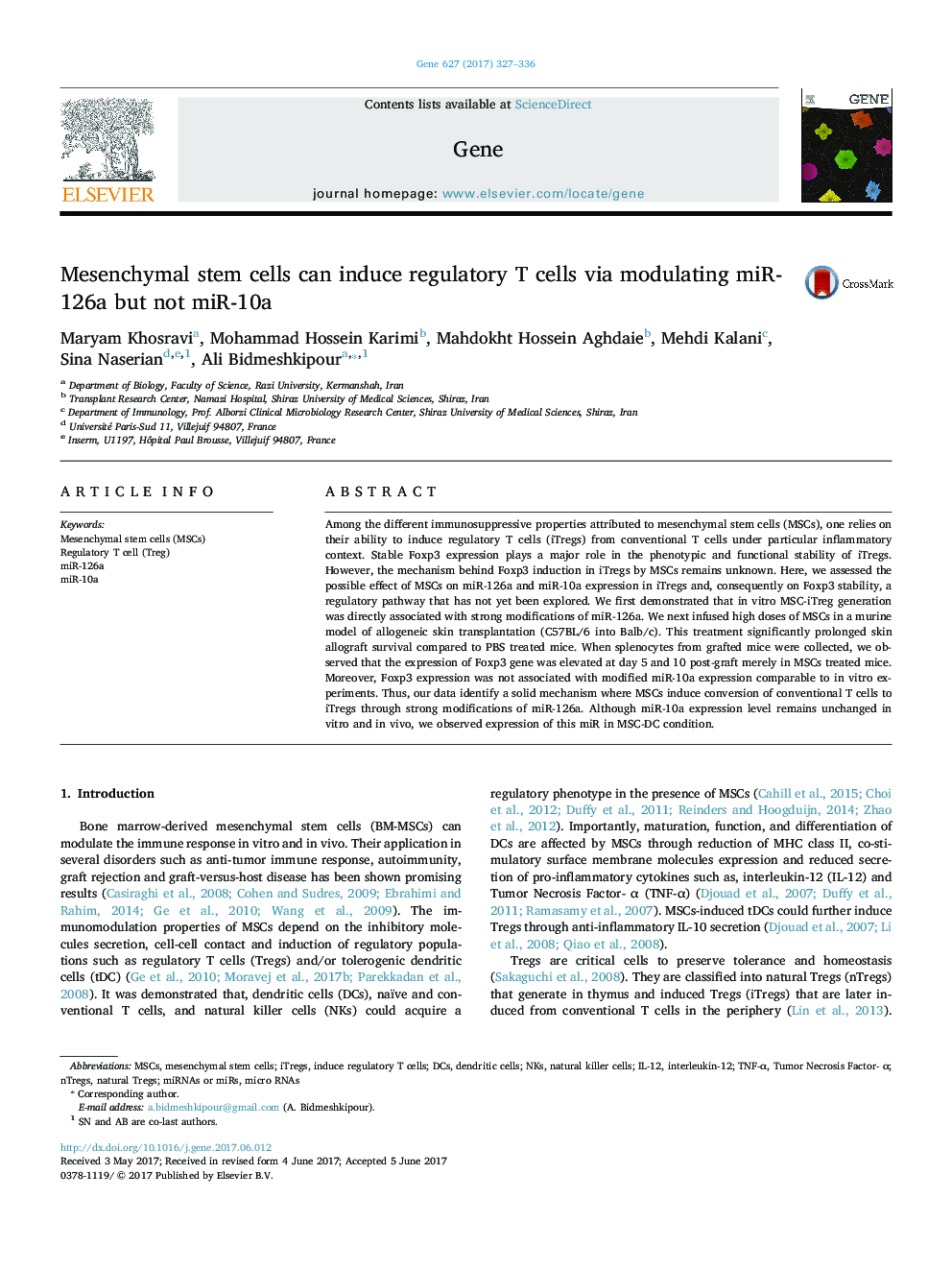| Article ID | Journal | Published Year | Pages | File Type |
|---|---|---|---|---|
| 5589644 | Gene | 2017 | 10 Pages |
Abstract
Among the different immunosuppressive properties attributed to mesenchymal stem cells (MSCs), one relies on their ability to induce regulatory T cells (iTregs) from conventional T cells under particular inflammatory context. Stable Foxp3 expression plays a major role in the phenotypic and functional stability of iTregs. However, the mechanism behind Foxp3 induction in iTregs by MSCs remains unknown. Here, we assessed the possible effect of MSCs on miR-126a and miR-10a expression in iTregs and, consequently on Foxp3 stability, a regulatory pathway that has not yet been explored. We first demonstrated that in vitro MSC-iTreg generation was directly associated with strong modifications of miR-126a. We next infused high doses of MSCs in a murine model of allogeneic skin transplantation (C57BL/6 into Balb/c). This treatment significantly prolonged skin allograft survival compared to PBS treated mice. When splenocytes from grafted mice were collected, we observed that the expression of Foxp3 gene was elevated at day 5 and 10 post-graft merely in MSCs treated mice. Moreover, Foxp3 expression was not associated with modified miR-10a expression comparable to in vitro experiments. Thus, our data identify a solid mechanism where MSCs induce conversion of conventional T cells to iTregs through strong modifications of miR-126a. Although miR-10a expression level remains unchanged in vitro and in vivo, we observed expression of this miR in MSC-DC condition.
Keywords
Related Topics
Life Sciences
Biochemistry, Genetics and Molecular Biology
Genetics
Authors
Maryam Khosravi, Mohammad Hossein Karimi, Mahdokht Hossein Aghdaie, Mehdi Kalani, Sina Naserian, Ali Bidmeshkipour,
